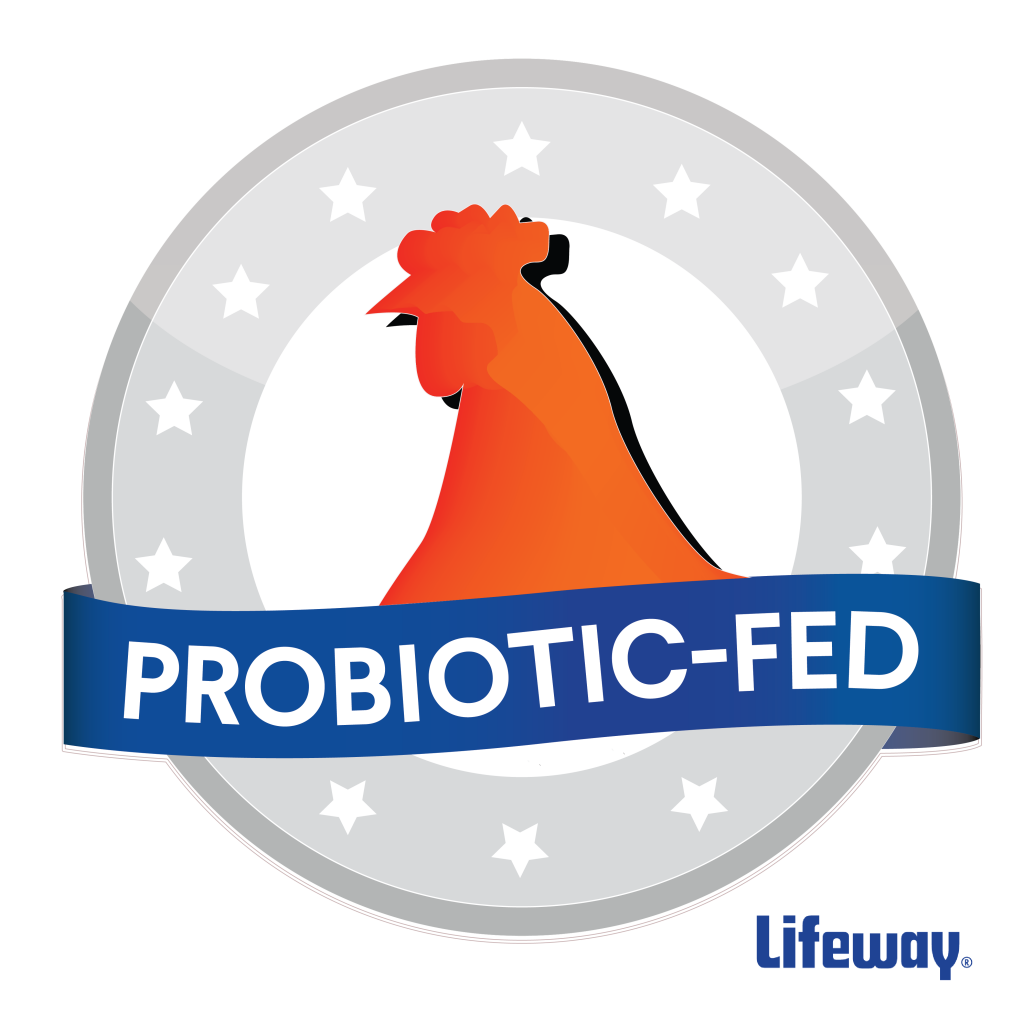If you’ve ever picked up a package of chicken at the grocery store and seen the words, “no antibiotics” written on the label, you’ve probably paused and thought, “What? Why would there be antibiotics in my chicken?” But the fact is, many animals – including chickens, cows to seafood – receive routine doses of antibiotics to prevent illnesses that often happen due to overcrowding. This widespread use of medication has been blamed for the increase in drug-resistant infections in humans who consume the meat. There’s a lot more to be said about this subject, but it’s not our focus today. Probiotics (you probably could have guessed!) are our focus.

Anti-Antibiotic, or Pro-Probiotic
In Asian, one poultry company is trying a different approach when it comes to raising chickens. Southeast Asia’s Kee Song Group is feeding its chickens a diet rich in probiotics – good-for-you bacteria that strengthen the immune system. The chickens’ water is fortified with probiotics as well. A Reuters story on Kee Song’s efforts notes that barns are filled with classical music and have lighting that changes to match the hues outside. In these barns, “rows of chickens are fed a diet rich in probiotics, a regimen designed to remove the need for the drugs and chemicals that have tainted the global food chain.” Kee Song Group says its use of ‘good’ bacteria in feed and water means it can meet one the industry’s biggest challenges: how to mass produce drug and hormone-free poultry at a reasonable price.
Leading by Example
Kee Song Group is not alone in making big changes to the poultry industry. Tyson Foods, Inc. has vowed to eliminate human antibiotics in chicken by 2017 (no timetable has been set for pork and beef.) Tyson, who provides meat to McDonald’s and other fast food chains, has also begun incorporating probiotics into animal feed.
Kee Song says that cost to raise probiotic-enhanced chickens is about 10-12 percent more than using antibiotics, but they can sell the new-and-improved birds at a 30 percent premium in stores (less expensive than free-range organic chicken but enough to turn a profit, one would assume).
More, a team at the University of Queensland in Australia found, in preliminary trials, that probiotics can double the efficiency of use of protein from feed to significantly boost weigh gain in livestock. In those same trials, researchers discovered a reduction in livestock nitrogen emissions, reducing potential air and water contamination.
So what’s next? We’ll have to wait and see, but this is promising news for the future of meat and poultry industry. As one of our favorite sayings goes, “say no to drugs and yes to belly bugs!”